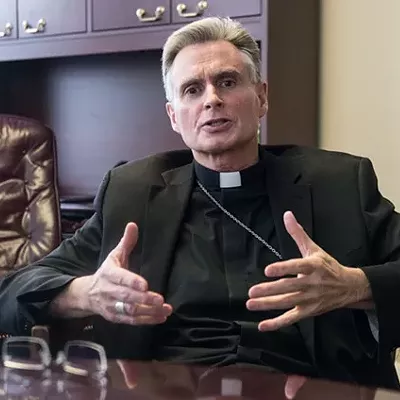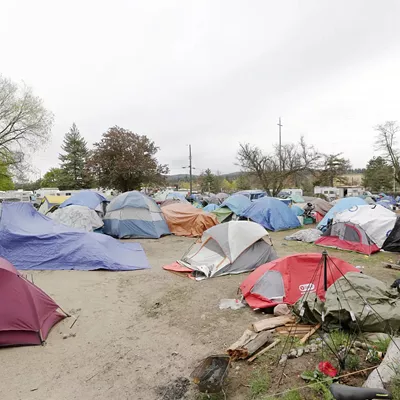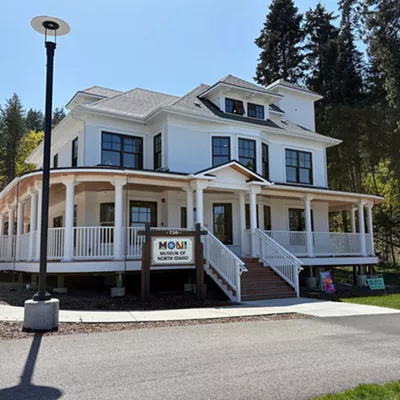Blase Cupich, bishop of the Catholic Diocese in Rapid City, S.D., had a good thing going. He’d spent 12 years in the small city of 125,000, building friendships and relationships. He’d raised $12.5 million to create a Catholic school and retreat center.
But life’s direction can change quickly. The Catholic Church told him he needed to pack up his bags and become bishop in Spokane, a diocese battered by sex abuse scandals and bankruptcy.
We sat down with Cupich (pronounced “soup-itch”) on Friday, the day of his installation to talk about the future of the Catholic Church in Spokane.
INLANDER: Was it hard to reset your life like that?
CUPICH: Sure it is. All of a sudden you’re told that you have to give up all of those ties and supports and relationships, and go to a place you’ve never been before. I had my own house and routine. All that’s gone.
The
Spokane diocese has been peppered by sexual abuse scandals.
The scandal is that, 30 years ago, the world of psychology, criminal law and the church didn’t handle the situation well. Society didn’t handle the situation well.
Today, even, we have various institutions that work with kids that don’t have in place codes of conduct and training that we have in place. We would hope that the measures we are taking can be instructive to these other institutions.
How should the Spokane Catholic Diocese deal with this wound?
This diocese has called for victims to come forward for healing, and we will continue to do that. I have every intention of meeting personally with any victim of sexual abuse by a priest and will continue to reach out to them.
I’m personally committed and I have a fairly good record with being able to do that.
Because of the sexual abuse lawsuit settlement, the diocese has been hit with a major bankruptcy. Some parishes may have to be sold. How do you feel the Catholic Church in Spokane should deal with that issue?
I think the financial future has a lot of uncertainty about it, simply because we don’t have the resources that we’ve had in the past to provide the infrastructure. We have no chancery office building. We rent a floor. We have cut back on our staff by about 75 percent. The bishop’s residence is gone and I’m living in a rectory here at the Cathedral. The future is uncertain. It’s in a very delicate situation. But we also remember two things: Our mission is not about finances. And secondly, we trust that we can place ourselves in the hands of God and we’ll get through this.
Over the last 50 years, the percentage of Catholics who attend Mass weekly has gone from 75 percent to 45 percent. Why is that?
The issue is complex. I think all mainline churches are suffering. First of all, society has changed in terms of mobility. With the greater mobility, people drift from their roots and so they begin to not feel as connected to an area they move into, and don’t get connected to their parish. The second reason, I think, is we are living in an era in which people are separating spirituality from religion. … And the sex abuse scandals have hurt us.
How can that trend be reversed?
We need to be more aggressive in our
hospitality, when people move into our area. We have to go and find out
what new Catholics in their area. [We need to help] people to see that
their spirituality isn’t the fullest it can be if they don’t share it
with others. And we need to rebuild trust. We’re more than a diocese
that suffered bankruptcy. We’re more than the sins of our past.


























